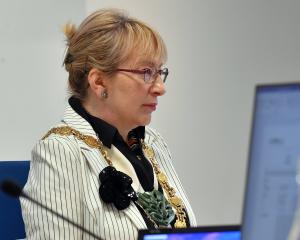
Yesterday, Waitaki District Mayor Gary Kircher said he feared some residents could lose their homes due to an astronomical rise in water charges over the next two years, which will cost households more than $200 a month.
The hikes are a result of Waitaki — in common with other councils — upgrading infrastructure to fulfil more stringent government water regulations.
In July, Waitaki had been expected to join the Gore, Central Otago and Clutha district councils in the formation of the Southern Water Done Well (SWDW) joint council-controlled organisation (CCO) to share water services.
However the council — although not Mr Kircher — voted against the move, leading prospective partners to question whether it could meet government financial sustainability requirements on its own.
Yesterday, Clutha District Mayor Bryan Cadogan said while was "saddened" to hear of Mr Kircher’s concerns, the current situation was "predictable".
"I also feel that same sense of despair and failure. This situation, that has developed over the last nine years, was totally predictable and avoidable. To end up with so many ratepayers in this vulnerable position reflects badly on successive governments’ handling of the situation ..."
He said the underlying circumstances that had led to the "cluster stuff" were complex.
Although in a better position than many other councils, the SWDW group — which signed its joint water services delivery plan this week — still faced challenges, Mr Cadogan said.
Joining forces gave councils the ability to leverage better deals from contractors, although current CCOs were unlikely to be large enough.
"The underlying problem is that councils [are competing] to attract the attention of the contracting industry. This ... places councils in a weak position at the bargaining table and ultimately costs ratepayers. We will not make the savings required until we recalibrate councils’ structure and that was the genesis of the original ‘Three Waters’ reforms, reducing duplication and drawing on collective strength to rectify this power imbalance.
"Today’s alternative ‘Local Water Done Well’ is proving to be a suboptimal and fragile political compromise, hastily put in place and inevitably failing the majority of New Zealanders because its success depends on all councils embracing the process. It now appears that instead of the desired two or three groupings in the South Island we are looking at around 18, a pathetic outcome that entrenches our weakened position."
In a press release yesterday, Commerce and Consumer Affairs Minister Scott Simpson said Local Water Done Well would deliver "safe, reliable and financially sustainable water services" for consumers.
"This government knows that the unavoidable solution to years of underinvestment in water infrastructure comes at a cost to everyday Kiwis, and that is why this legislation focuses on financial sustainability," Mr Simpson said.
"The legislation strips out excessive and unnecessary regulatory costs while ensuring that compliance requirements are at the level needed for safe, effective water services. Kiwis should be getting a fair deal on water, and Local Water Done Well delivers on this."












